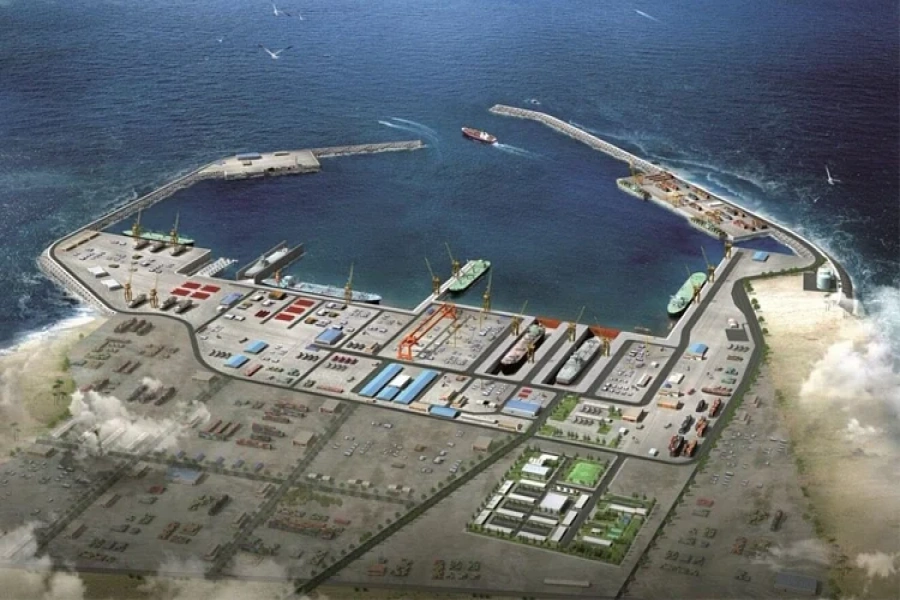KATHMANDU, May 5: Representatives from 36 organizations related to conflict victims have jointly objected to the list of 34 publicly shortlisted candidates for positions in two commissions formed to conclude Nepal’s transitional justice process.
While the recommendation process for officials at the Truth and Reconciliation Commission and the Commission of Investigation on Enforced Disappeared Persons is ongoing, the victims have expressed concern that political power-sharing is once again undermining the selection.
Victims have voiced dissatisfaction, stating that the process is advancing in a superficial and politically controlled manner, prioritizing political access and favoritism which will prevent the national responsibility of transitional justice from being fulfilled and justice from being served. With the recommendation committee and the victims’ community standing on opposite sides, the transitional justice process remains stuck.
The official recommendation committee, led by former Chief Justice Om Prakash Mishra and formed on March 28, 2025, has already moved the process forward. The committee invited applications from interested candidates and has released a list of 34 names. Among them, Mahesh Thapa and Sher Bahadur KC are listed as candidates for Chairperson of the Truth and Reconciliation Commission.
Similarly, names including Agni Prasad Thapaliya, Achyut Prasad Bhandari, Dilli Raj Acharya, Leela Devi Gadtola, Bijay Singh Sinjapati, and Bishwaraj Koirala have been selected for chairperson or member roles in either commission. These names were also made public previously. The remaining names are listed as candidates for member positions in both commissions.
Wrangling over portfolios delays cabinet expansion

The committee has summoned the 34 listed candidates for presentations from May 6 to 8. The victims and their organizations have urged a halt to the recommendation process, accusing political parties of trying to fill the commissions with individuals who do not understand transitional justice.
Calling the preparation of a short list with a disappointing leadership irresponsible, the victims stated, “Labeling victims as weak service seekers while excluding them from meaningful participation in the entire process, yet continuing to claim a victim-centered transitional justice approach controlled by the perpetrators—this is what we protest.”
From the beginning, the victims have been unsatisfied with the official selection process for the transitional justice commissions.
Previously, the committee had failed to recommend officials due to political interference. Now, even as opposition from victims grows again, doubts are rising about whether the process will proceed. The victims say the newly published list, which ignores lessons from repeated failures, has deceived them once again.
“We condemn the irresponsible top political leadership for repeatedly pushing for power-sharing, trying to form a weak commission without including capable individuals,” said the victim community, “We strongly urge the main political leadership and the government to immediately ensure meaningful representation of the victim community and to adopt a new autonomous recommendation committee and a credible, transparent, and consultative selection process.”
They say the selection process based on political interests under a controlled procedure is not acceptable.
The victim community has questioned the legal and accepted legitimacy of the recommendation committee itself. “We remind the committee that the conflict victims have repeatedly given written and verbal suggestions. Yet, the committee has carried out a controlled and superficial process, excluding the primary stakeholders—the victims for whom these commissions exist—and has not consulted with them. This is unacceptable,” a joint statement released Friday by victim organizations stated.
“The victim community strongly objects to the list that includes individuals with no knowledge, contribution, or expertise in transitional justice, lacking proper study of experience, capability, contribution, plans, applications, or personal details, and instead includes politically connected individuals close to the state or those not advocating for the victims,” said the joint statement signed by representatives of 36 victim organizations.
Among those issuing the joint statement are Sirjana Shrestha, President of the Conflict Victim Women National Network; Ram Kumar Bhandari, President of the National Network of Victims of Serious Human Rights Violations; Suman Adhikari, Founding President of the Conflict Victims Common Platform; Gopal Bahadur Shah, President of the Conflict Victims National Network; Surendra Khatri, President of the National Network of Disabled Conflict Victims; and Devi Khadka of Aparajita Foundation. “Including only a few names in the short list raises serious questions about the competence and decision-making ability of the committee, endorsing extreme opportunism,” the statement reads. They also accused representatives from the National Human Rights Commission on the recommendation committee of accepting political interference.
Victims of both the state and rebel sides during the armed conflict have demanded an immediate new autonomous recommendation committee and a credible, transparent, and consultative public selection process. Despite nearly two decades of consistent calls from the conflict victim community, civil society, and the international community for a victim-centered, gender-friendly, disability-inclusive, and credible transitional justice process in accordance with the 2006 Comprehensive Peace Accord, their voices remain unheard.






































